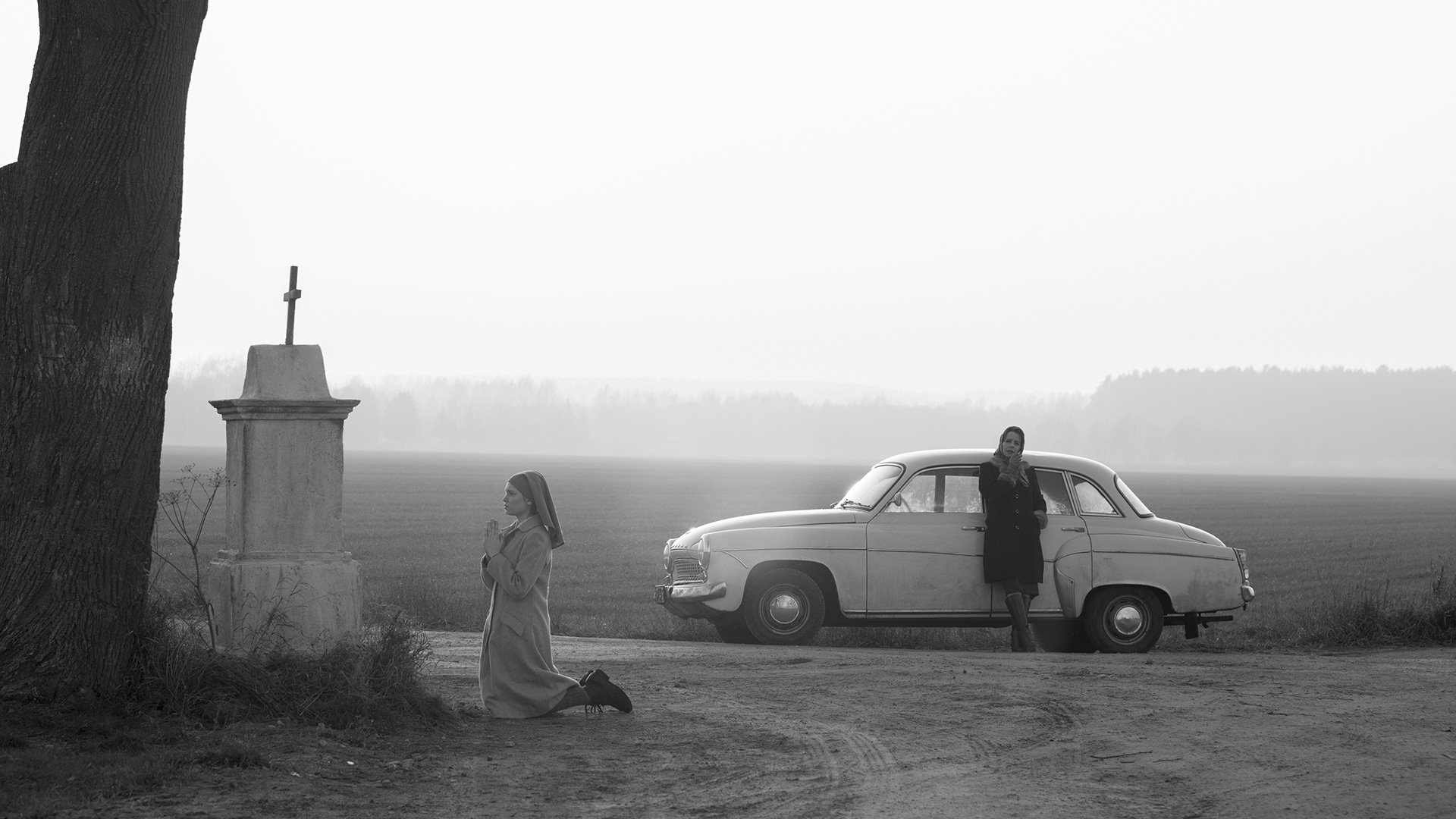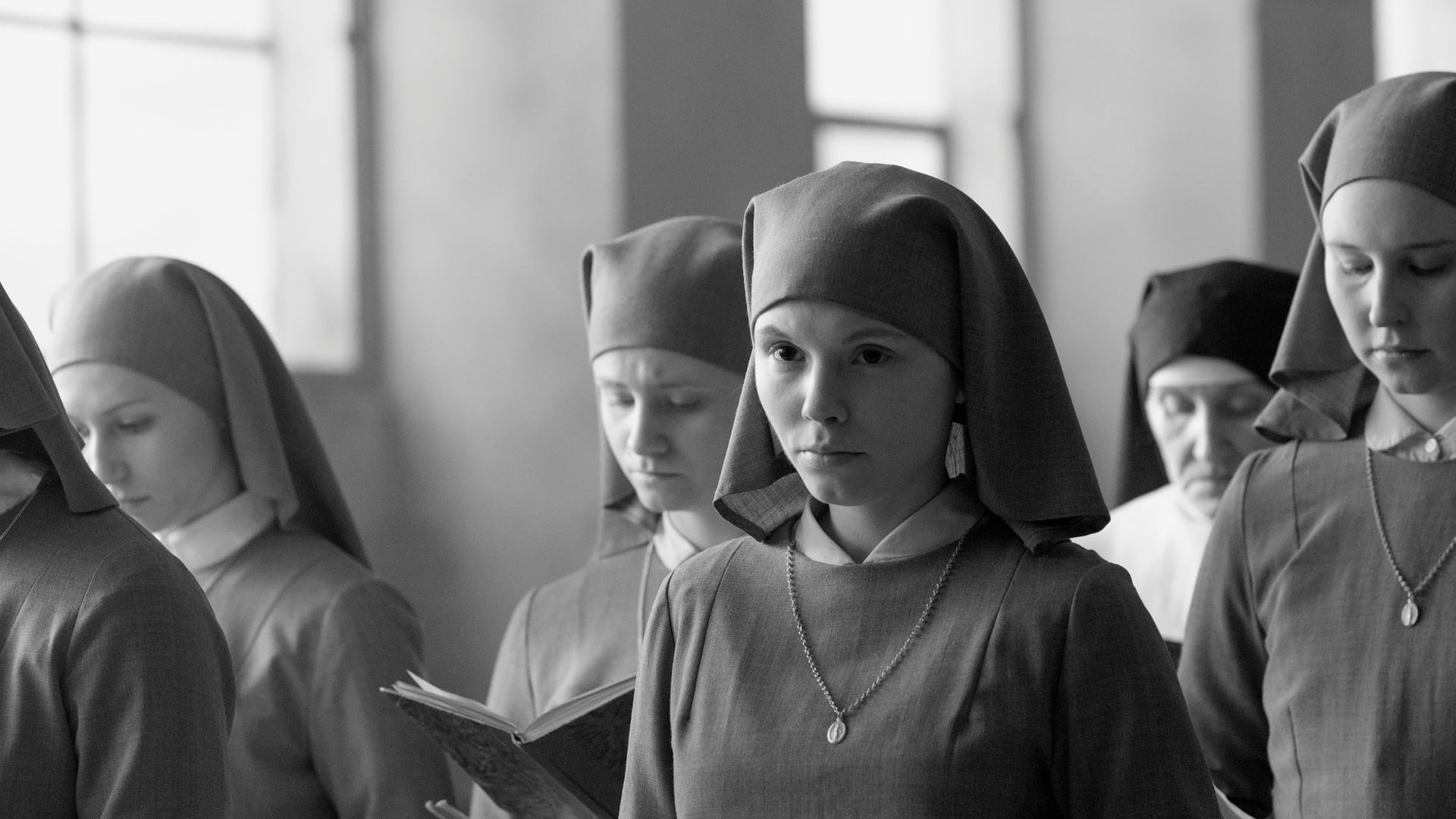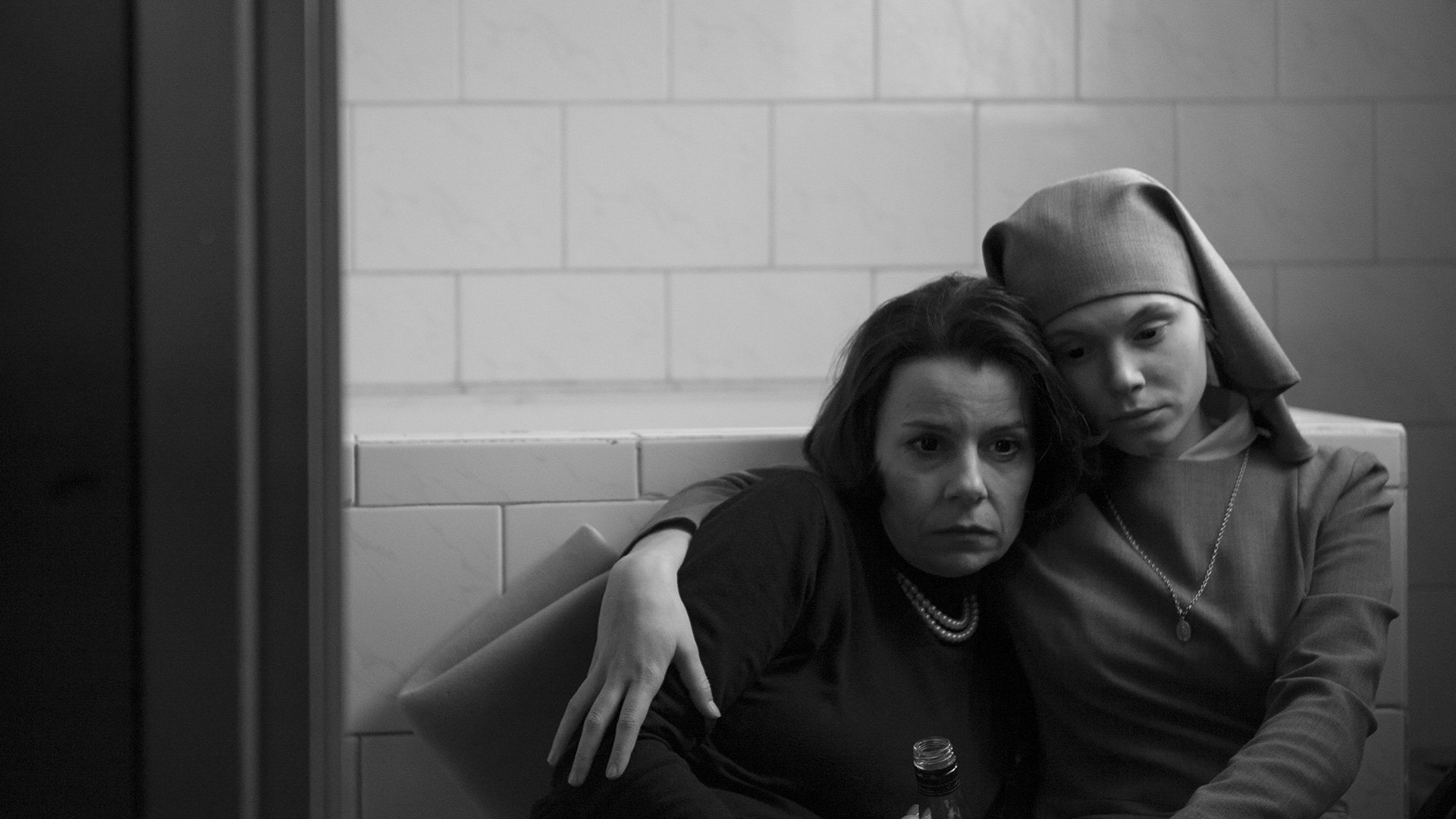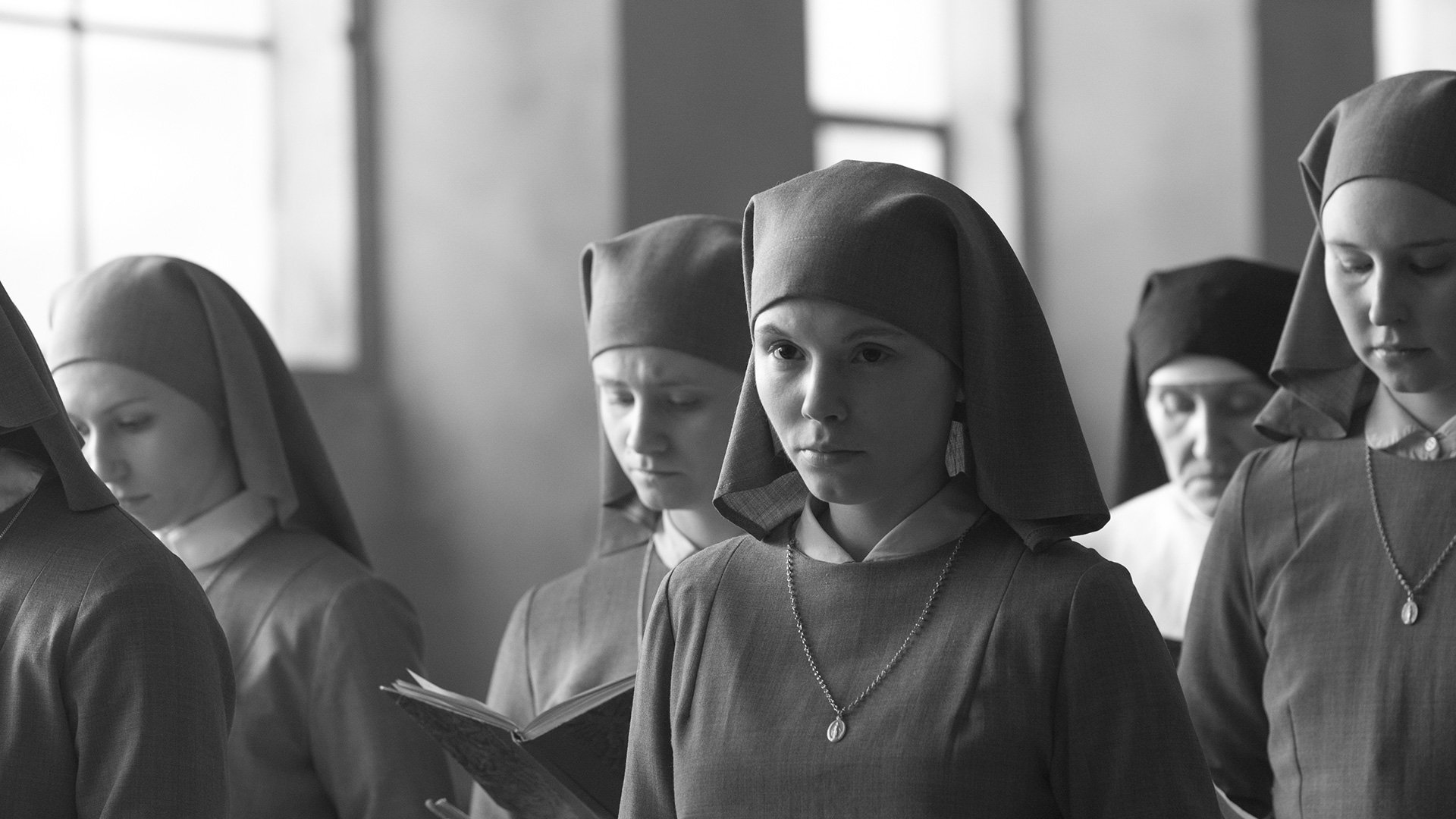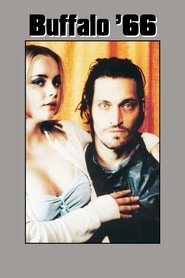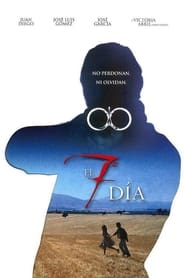
Video Sources 0 Views

Synopsis
Watch: Ida 2013 123movies, Full Movie Online – Poland, 1962. Anna, an orphan brought up by nuns in the convent, is a novice. She has to see Wanda, the only living relative, before she takes her vows. Wanda tells Anna about her Jewish roots. Both women start a journey not only to find their family’s tragic story, but to see who they really are and where they belong. They question what they used to believe in..
Plot: Anna, a young novitiate in 1960s Poland, is on the verge of taking her vows when she discovers a family secret dating back to the years of the German occupation.
Smart Tags: #poland #nun #1960s #jew #convent #novitiate #family_secret #loss_of_virginity #aunt_niece_relationship #confronting_the_past #anti_semitism #persecution_of_jews #polish_jewish_discrimination #suicide #female_nudity #faith #saxophonist #soviet_occupation #orphan #secret #human_remains
Find Alternative – Ida 2013, Streaming Links:
123movies | FMmovies | Putlocker | GoMovies | SolarMovie | Soap2day
Ratings:
Reviews:
The Nun’s Story
Whereas Jacques Rivette’s despairing ‘La Religieuse’ had been shot in incongruously pretty sixties Eastmancolor, this laconic but wryly good-humoured female road movie – like Ingmar Bergman’s Persona’ – gains much of it’s seductive visual impact from being shot in coolly glacial monochrome that looks like what you’d have got if Vermeer had worked in charcoal.Similarly, like the Scandinavian good looks of Liv Ullman and Bibi Andersson in Bergman’s film, ‘Ida’ is fascinating to watch throughout simply for the strong Polish features of Agata Kulesza as the chain-smoking ‘Red Wanda’ and the button eyes of Agata Trzebuchowska in the title role.
Review By: richardchatten
Few new revelations in Polish post-Holocaust melodrama as ‘The Song of Bernadette’ meets ‘The Pawnbroker’
‘Ida’ is Polish director Pawil Palikowski’s latest contribution to the canon of Holocaust and post-Holocaust ‘dramaturgy’. Lasting a brief 80 minutes, ‘Ida’ is shot in bleak black and white and has been likened to the style of the French New Wave and their iconic ‘progenitor’, Robert Bresson. The film has garnered one accolade after another and one has to search far and wide before digging up any significant critical commentary. Nonetheless, I will join those few who refuse to jump on the proverbial bandwagon, and praise this film as if it’s the second coming of ‘Grand Illusion’.Set in Soviet-controlled Poland in 1962, ‘Ida’ is the tale of Anna, a young woman who has lived in a convent all her life and on the verge of taking her vows as a nun. Before allowing her to prepare for the ordination, the mother superior informs Anna (who has been sheltered her entire life) to meet her long-lost aunt, ignoring the fact that such a meeting could be quite traumatizing.
Nonetheless, given the extraordinary nature of Anna’s parentage, the mother superior perhaps believes that meeting the aunt would be the proper thing to do, vis-à-vis the Church. It turns out that Anna’s birth name was Ida Lebenstein and she was the lone survivor of a Jewish family murdered during the Holocaust. This information is confided to her by her Aunt Wanda, who never revealed her identity to her niece, in all the years she was at the convent.
The Ida plot concerns Ida’s quest to learn the fate of her parents and their final resting place. The contrast between the idealistic Ida and cynical, jaded Wanda, couldn’t have been put more succinctly put, when a sarcastic Wanda describes the difference between the two, to Anna: “I’m the slut and you’re the saint!”
On the surface, Wanda appears to be a character we haven’t seen before: a former state prosecutor, now working as a Judge in a post-Stalinist Poland, who also happens to be Jewish. But despite her semi-prominent position in the Communist party, nothing can help her feel better about herself. In addition to occasionally having indiscriminate dalliances with men, she also has a bad drinking problem. In one telling scene, she’s arrested for drunk driving and pulls rank on the local police official who has been processing the arrest, threatening severe repercussions, which could lead to his dismissal (or perhaps something far worse).
Wanda’s self-destructive attitude is similar to the character Sol Nazerman, played by Rod Steiger in the 1965 Post-Holocaust drama, ‘The Pawnbroker’. Both are ‘damaged goods’ as a result of their experiences during the Holocaust. Nazerman becomes a total misanthrope but Wanda expresses her contempt through her sarcasm. One reviewer (Dennis Schwartz) aptly describes ‘The Pawnbroker’ as “an unpleasant, solemn and overwrought melodrama about an embittered Jewish Holocaust survivor.” This description can also be applied to Wanda. The problem with Palikowski’s strategy here is that he wants credit for merely pointing out the OBVIOUS: the Holocaust was a terrible thing and in some cases, had immense, deleterious effects on the survivors. And Palikowski goes further by attempting to manipulate our emotions by having his one-note character (SUPER SPOILERS AHEAD), jump out the window (in effect, Palikowski can’t resist ‘hitting us over the head’, by again stating the obvious: ‘you see how bad it was for Holocaust survivors! She even jumped out the window!).
Just as plenty of Jewish people will find this dour portrait of survivor guilt to be obvious (and perhaps heavy-handed), those of Polish heritage may feel equally short-changed. With any good melodrama, you cannot have a tragic victim without a sinister villain. The skimpy way, however, in which Palikowski references the Holocaust may play into a simplistic notion of collective responsibility for Polish anti-semitism during and after World War II. But there were indeed isolated acts of Polish people attempting to help Jews during the Nazi Occupation as well as many Polish victims themselves, at the hands of the Nazis.
After searching for the father, Anna and Wanda discover that it was the son who murdered Anna’s family. All we know that he’s a villain who killed the family to take over the deed to the house. The narrative suffers from the lack of development of a complex antagonist as we never really get to know much about the son or the rest of the family. Instead, the incident is used to simply explain Wanda’s guilt (the revelation of how Wanda’s son–who she gave to her sister–is murdered, is perhaps the last straw, that leads her to do herself in!) as well as raising another issue: Anna’s decision to forgive her family’s murderer (she agrees not to contest the claim to the property in exchange to finding out where her family is buried!).
As for how Palikowski resolves Anna’s issues can be interpreted in differing ways. I found it difficult to believe that Anna would suddenly give into her carnal desires given her sheltered upbringing. It makes for a good movie to have a love scene, but the odds that such an idealistic woman would suddenly ‘come of age’ (albeit so briefly), remains questionable. Does Anna’s decision to return to her faith represent a triumph for her—a sticking to one’s guns, so to speak? In my view, Palikowski wants us to view her return to the church as a second tragedy. Note how she so flippantly dismisses her lover’s idyllic picture of the future. For Anna, marriage and family life can only lead to a mundane existence; so a return to cloistered life, now appears mandatory.
‘Ida’ is replete with powerful visual images and raises important questions about faith, guilt and forgiveness. This is all at the expense of important character development as well as a tendency toward melodramatic excess. In short, I wanted more.
Review By: Turfseer
Other Information:
Original Title Ida
Release Date 2013-10-25
Release Year 2013
Original Language pl
Runtime 1 hr 22 min (82 min)
Budget 2159280
Revenue 15298355
Status Released
Rated PG-13
Genre Drama
Director Pawel Pawlikowski
Writer Pawel Pawlikowski, Rebecca Lenkiewicz
Actors Agata Kulesza, Agata Trzebuchowska, Dawid Ogrodnik
Country Poland, Denmark, France, United Kingdom
Awards Won 1 Oscar. 68 wins & 92 nominations total
Production Company N/A
Website N/A
Technical Information:
Sound Mix Dolby Digital
Aspect Ratio 1.37 : 1
Camera Arri Alexa Plus 4:3, Zeiss Ultra Prime Lenses
Laboratory N/A
Film Length N/A
Negative Format Codex
Cinematographic Process ARRIRAW (2.8K) (source format), Digital Intermediate (2K) (master format)
Printed Film Format 35 mm (spherical) (Kodak Vision 2383), D-Cinema
Original title Ida
TMDb Rating 7.254 829 votes
Director
Director


